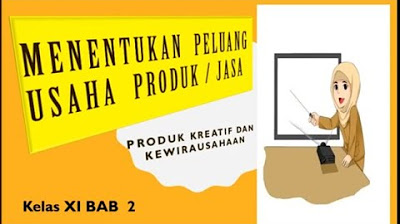TLE 7: Quarter 2- LC 1: CAREER AND BUSINESS OPPORTUNITIES IN AGRICULTURE || MATATAG CURRICULUM
Summary
TLDRThis lesson from Teacher Julie's channel introduces careers and business opportunities in the agricultural sector. It is designed for the second quarter of the Technology and Livelihood Education curriculum. The objectives include identifying various agricultural careers, creating a job hiring poster, and understanding the value of agricultural business opportunities. The lesson covers topics like crop production, animal husbandry, food processing, agricultural technology, and agribusiness. Students will also explore current agricultural issues in the Philippines, such as food supply shortages, importation, and smuggling, through discussions and activities.
Takeaways
- 🌱 The lesson focuses on careers and business opportunities in the agricultural sector, aligned with the second quarter of the Matatag curriculum.
- 🎯 By the end of the lesson, 80% of learners are expected to identify agricultural career opportunities, create job posters, and value agricultural business possibilities.
- 📚 Prior knowledge activation includes a short review on agricultural topics like plant cultivation, livestock, and fish production.
- 💼 Various sub-sectors in agriculture include crop production, animal husbandry, food processing, agricultural technology, and agribusiness.
- 🌾 Crop production involves farming, horticulture, and growing grains, fruits, and vegetables. Careers include agronomists and horticulturists.
- 🐄 Animal husbandry deals with livestock breeding and management. Related careers include veterinarians and livestock managers.
- 🥫 Food processing focuses on turning agricultural products into consumer-ready goods. Food scientists and technologists work in this field.
- 🤖 Agricultural technology covers advanced tech applications like precision farming and agricultural engineering. Careers include agricultural engineers and technicians.
- 💼 Agribusiness involves the economic aspects of farming, including farm management and marketing. Careers include agricultural economists and farm managers.
- 📊 The lesson also encourages discussions on current agricultural issues like rice shortages, sugar prices, and smuggling.
Q & A
What is the main topic of the lesson discussed in the transcript?
-The lesson is about careers and business opportunities in agriculture, as part of the Technology and Livelihood Education (TLE) subject.
What is the learning competency goal for this lesson?
-The goal is for 80% of learners to be able to identify various careers and business opportunities in agriculture, create a job hiring poster, and value the possibilities of pursuing a career in agriculture.
What are the main sub-sectors of the agricultural industry mentioned?
-The sub-sectors include crop production, animal husbandry, food processing and manufacturing, agricultural technology, and agricultural economics and agribusiness.
What are some career options in the crop production sub-sector?
-Careers in crop production include agronomist, horticulturist, and agricultural scientist.
Which careers are available in the animal husbandry sub-sector?
-Career options in animal husbandry include veterinarian, animal scientist, and livestock manager.
What does the food processing and manufacturing sub-sector involve?
-It involves processing, packaging, and distributing agricultural products into consumer-ready foods and beverages. Careers include food scientist, food technologist, and quality assurance specialist.
How does agricultural technology contribute to the industry?
-Agricultural technology involves applying advanced technologies like precision farming and agricultural engineering. Career options include agricultural engineer, precision farming specialist, and agricultural machinery technician.
What are the focus areas of agricultural economics and agribusiness?
-This sub-sector focuses on farm management, agricultural policy, and agricultural marketing. Careers include farm manager, agricultural economist, and agricultural policy analyst.
How does the lesson engage students in activating prior knowledge?
-Students are asked to discuss current agricultural issues such as food supply shortages, price slumps, and agricultural smuggling.
What type of activity is used to unlock content vocabulary in the lesson?
-A match-type activity is used to help students learn and understand key vocabulary terms related to the lesson.
Outlines

هذا القسم متوفر فقط للمشتركين. يرجى الترقية للوصول إلى هذه الميزة.
قم بالترقية الآنMindmap

هذا القسم متوفر فقط للمشتركين. يرجى الترقية للوصول إلى هذه الميزة.
قم بالترقية الآنKeywords

هذا القسم متوفر فقط للمشتركين. يرجى الترقية للوصول إلى هذه الميزة.
قم بالترقية الآنHighlights

هذا القسم متوفر فقط للمشتركين. يرجى الترقية للوصول إلى هذه الميزة.
قم بالترقية الآنTranscripts

هذا القسم متوفر فقط للمشتركين. يرجى الترقية للوصول إلى هذه الميزة.
قم بالترقية الآنتصفح المزيد من مقاطع الفيديو ذات الصلة

PKWU Kelas 11- Wirausaha kerajinan dari bahan limbah berbentuk bangun ruang (1/2) - SMA Doa Bangsa

Disciplina: Geografia | Aula: Atividades Econômicas do Setor Primário

PRODUK KREATIF DAN KEWIRAUSAHAAN SMK KELAS XI (FreeRPP): MENENTUKAN PELUANG USAHA PRODUK/JASA

LESSON: (PART 2) SECTORS OF ICT AND ITS CAREERS AND BUSINESS OPPORTUNITIES

Q1W1D1 TLE7- MATATAG CURRICULUM LESSON: SECTORS OF ICT AND ITS CAREERS AND BUSINESS OPPORTUNITIES

Matatag Curriculum TLE Components: Agriculture. Lesson 2
5.0 / 5 (0 votes)
